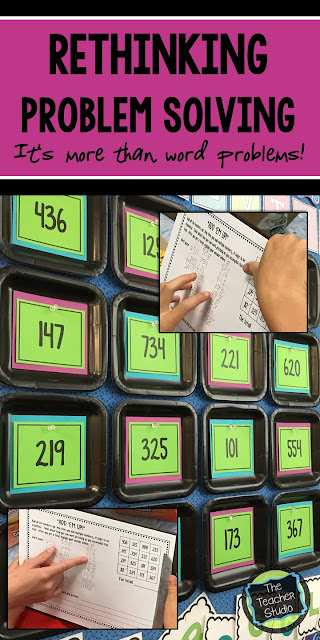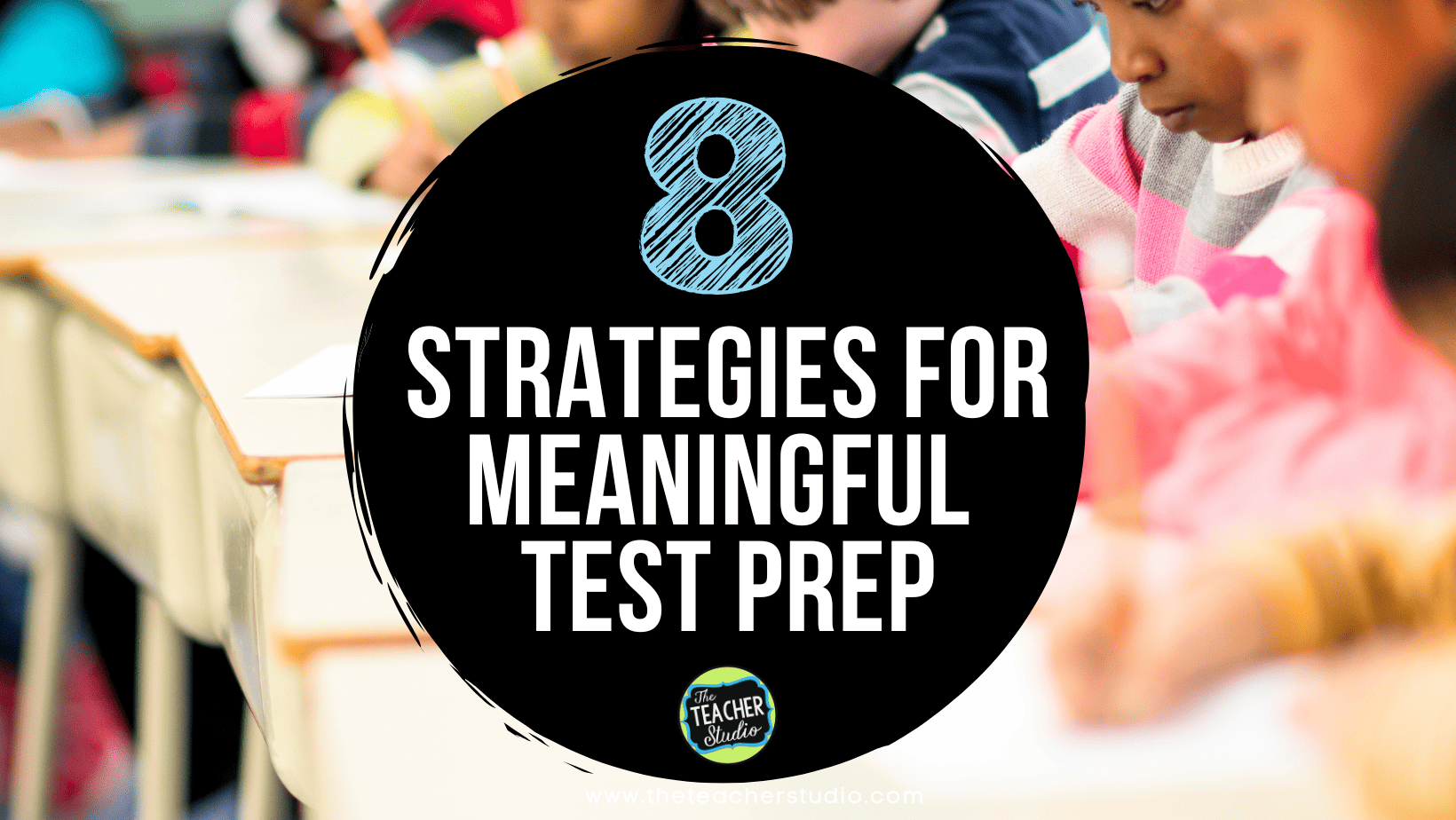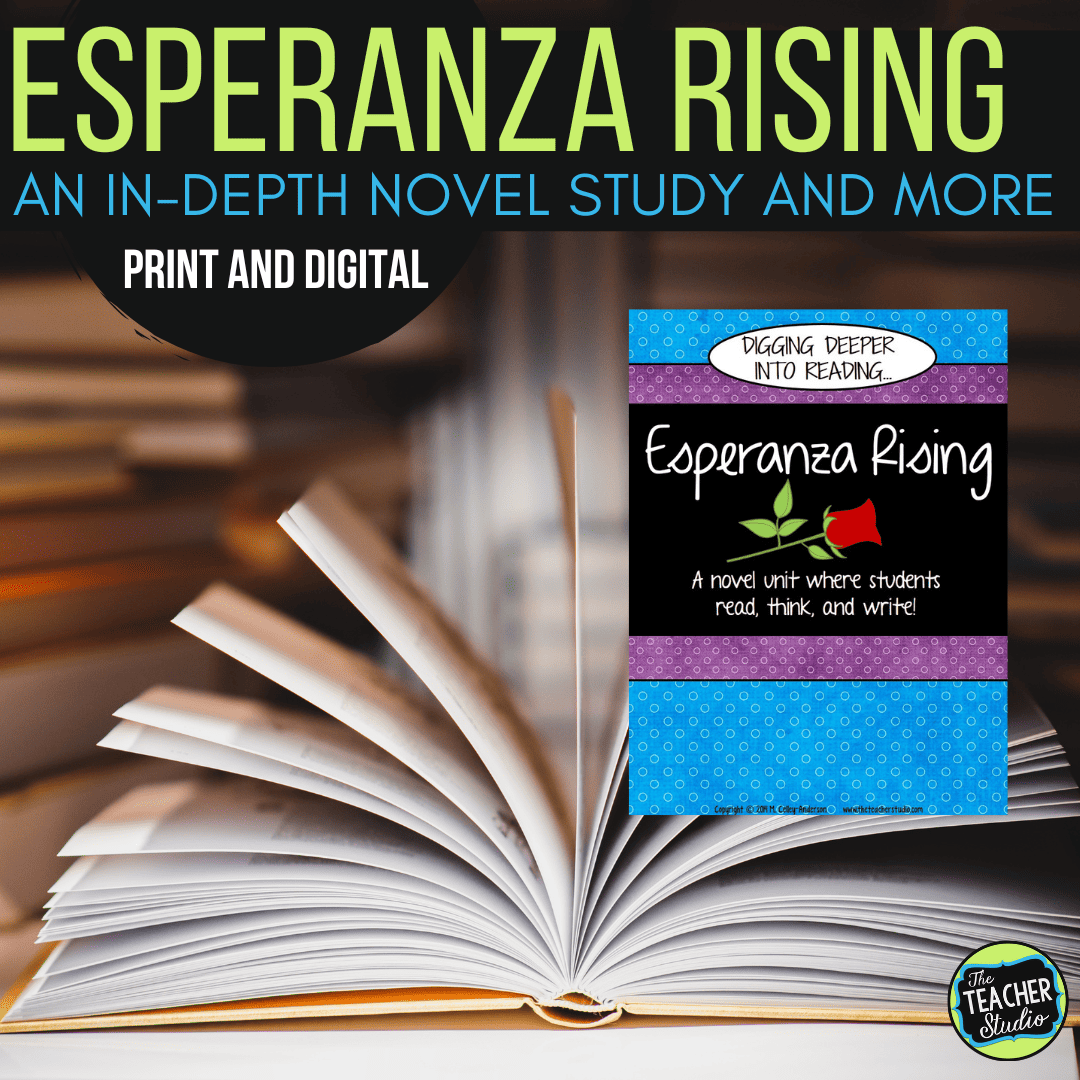For years I have used the phrase “problem solving does not equal word problems”, but I love it when I have a real world “math experience” that helps prove this point. Today was one of those days–so I thought I’d share!
If you have followed me for any length of time, you may have seen me post about “Mind Boggling Math”, a resource I created about three years ago to help provide me students with a challenging way to practice their addition, subtraction, estimation, and perseverance skills. I have used it in different ways–sometimes as an activity for fast finishers, sometimes I have done it cooperatively, and sometimes I introduce it to the entire class and just see what happens!
That’s what happened this year. I explained the tasks to my class…explained that the goal was to improve their math organization, to work on their addition with regrouping fluency and accuracy, and to persevere with challenging tasks. I was kind of anticipating using it as a part of math workshop…where students could be working on something meaningful while I pull small intervention groups. That’s how it started.
Until today.
I had a group of four girls working together when one of them came up to me and said, “Mrs. A, we have been working really hard on this page–but we have four different answers.”
Yikes, right?
I asked them what they thought they could do to try to find their mistakes…and one suggested the start with one column and see if they could get agreement on that one. I thought that sounded like a great idea–and let them get back to work.
I walked past another student who told me, “I keep getting screwed up on what numbers I have used.”
I sat down next to him and asked what he thought he could to to organize his thinking. He thought for a minute and then said, “Maybe I should cross off numbers I use so I can easily see them.” I thought that seemed like a great strategy–and let him get back to work.
So as I was circulating around the room getting ready to pull my next intervention group, I saw a group of three boys huddled up–one with his arms crossed and a pretty sour look on his face. The other two had a packet on a clipboard and were pointing and looking at their own sheets…so I asked what they were doing. (First thought–can’t like–they were copying off each other).
One replied, “—- has a different answer than we have so we are trying to help him find where he went wrong.”
The “victim” chimed in with “I think THEY are wrong and I am right!”. I asked how they planned to figure out the correct answer…and they thought for a bit. One said, “Let’s try adding them up in a different order and see what we get.” I smiled and asked them to let me know what they found out.
So…despite the fact that I am a HUGE believer in word problems, I think it’s important for us to remember that “solving problems” is more than solving word problems…it’s about solving “problems” that occur when processing math. These three examples literally happened within 15 minutes of each other…and within 20 feet of classroom space! I shared with the students what I had noticed–and how that type of thinking is TRULY what builds mathematical minds. This is way more than solving these addition tasks–it’s about developing strategies (like solving a problem a different way…or marking off numbers to keep organized…) that can apply to MANY other math situations. This is why the Standards for Mathematical Practice are so critical–it’s more than the content.
I watched the students start to understand this…and to be proud of the struggles they had. This is why I teach. I. Love. These. Moments. I reminded my students what we had learned about the brain and how it grows from mistakes–and how proud I was that they were sticking with the task despite it being challenging and frustrating–and that their hard work truly was paying off…even if they NEVER find the correct answer. #teachablemoment
If you are interested, I have this resource in the version I have pictured (The “original” Mind Boggling Math) and also a “Money” edition to add decimals and also a 2 digit version…I may replace this one with the two digit version for some of my struggling students. I may also have a few use a calculator to check their work as they go so they don’t get too frustrated…the activities are so valuable and I want all my students to have access. See what you think!






